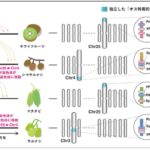一部の患者には、抗うつ剤単独よりも2種類の薬の方が良い場合がある For some patients, two different medications better than antidepressant alone
2023-03-03 ワシントン大学セントルイス校
アリピプラゾールは、もともとは統合失調症の治療薬として承認されたが、最近は、抗うつ薬の単独治療に反応しない若い患者に対して、低用量で追加治療として使用されている。
この研究は、800人以上の高齢者を対象に行われ、アリピプラゾールを追加することで30%の患者が回復したことが分かった。しかし、抗うつ薬を切り替えた場合は、20%の患者しか回復しなかった。
<関連情報>
- https://source.wustl.edu/2023/03/adding-med-to-antidepressant-may-help-older-adults-with-treatment-resistant-depression/
- https://medicine.wustl.edu/news/adding-antipsychotic-medication-to-antidepressant-may-help-older-adults-with-treatment-resistant-depression/
- https://www.nejm.org/doi/full/10.1056/NEJMoa2204462
治療抵抗性の老年期うつ病における抗うつ薬の増強と切り替えの比較 Antidepressant Augmentation versus Switch in Treatment-Resistant Geriatric Depression
Eric J. Lenze,Benoit H. Mulsant,Steven P. Roose,Helen Lavretsky,Charles F. Reynolds,Daniel M. Blumberger,Patrick J. Brown,Pilar Cristancho,Alastair J. Flint,Marie A. Gebara,Torie R. Gettinger,Emily Lenard,J. Philip Miller,Ginger E. Nicol,Hanadi A. Oughli, Vy T. Pham,Bruce L. Rollman, Lei Yang and Jordan F. Karp
The New England Journal of Medicine Published:March 3, 2023
DOI: 10.1056/NEJMoa2204462
Abstract
BACKGROUND
The benefits and risks of augmenting or switching antidepressants in older adults with treatment-resistant depression have not been extensively studied.
METHODS
We conducted a two-step, open-label trial involving adults 60 years of age or older with treatment-resistant depression. In step 1, patients were randomly assigned in a 1:1:1 ratio to augmentation of existing antidepressant medication with aripiprazole, augmentation with bupropion, or a switch from existing antidepressant medication to bupropion. Patients who did not benefit from or were ineligible for step 1 were randomly assigned in step 2 in a 1:1 ratio to augmentation with lithium or a switch to nortriptyline. Each step lasted approximately 10 weeks. The primary outcome was the change from baseline in psychological well-being, assessed with the National Institutes of Health Toolbox Positive Affect and General Life Satisfaction subscales (population mean, 50; higher scores indicate greater well-being). A secondary outcome was remission of depression.
RESULTS
In step 1, a total of 619 patients were enrolled; 211 were assigned to aripiprazole augmentation, 206 to bupropion augmentation, and 202 to a switch to bupropion. Well-being scores improved by 4.83 points, 4.33 points, and 2.04 points, respectively. The difference between the aripiprazole-augmentation group and the switch-to-bupropion group was 2.79 points (95% CI, 0.56 to 5.02; P=0.014, with a prespecified threshold P value of 0.017); the between-group differences were not significant for aripiprazole augmentation versus bupropion augmentation or for bupropion augmentation versus a switch to bupropion. Remission occurred in 28.9% of patients in the aripiprazole-augmentation group, 28.2% in the bupropion-augmentation group, and 19.3% in the switch-to-bupropion group. The rate of falls was highest with bupropion augmentation. In step 2, a total of 248 patients were enrolled; 127 were assigned to lithium augmentation and 121 to a switch to nortriptyline. Well-being scores improved by 3.17 points and 2.18 points, respectively (difference, 0.99; 95% CI, -1.92 to 3.91). Remission occurred in 18.9% of patients in the lithium-augmentation group and 21.5% in the switch-to-nortriptyline group; rates of falling were similar in the two groups.
CONCLUSIONS
In older adults with treatment-resistant depression, augmentation of existing antidepressants with aripiprazole improved well-being significantly more over 10 weeks than a switch to bupropion and was associated with a numerically higher incidence of remission. Among patients in whom augmentation or a switch to bupropion failed, changes in well-being and the occurrence of remission with lithium augmentation or a switch to nortriptyline were similar. (Funded by the Patient-Centered Outcomes Research Institute; OPTIMUM ClinicalTrials.gov number, NCT02960763. opens in new tab.)



